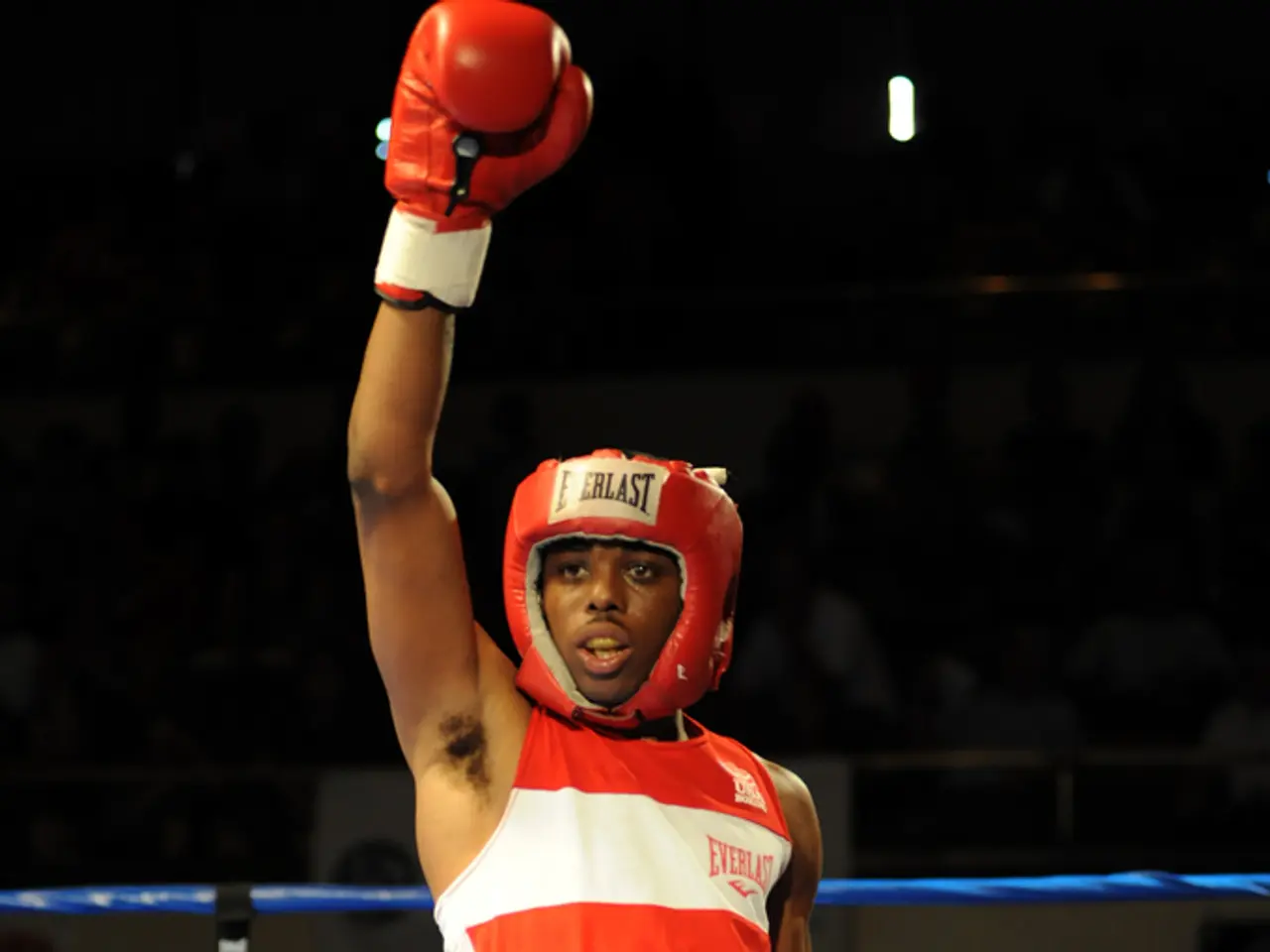Fatal Brain Injuries Occur in Two Boxers at Tokyo Competition, Japan
In a tragic turn of events, Japan has been hit by two boxing fatalities this August, with the deaths of Hiromasa Urakawa and Shigetoshi Kotari. Both boxers succumbed to brain injuries sustained during their respective bouts.
The most recent fatality, Urakawa, marks the third boxing fatality worldwide from in-ring injuries this year. Kotari, who passed away a day earlier, also suffered from a brain injury, specifically a subdural hematoma, or brain hemorrhage.
The Japan Boxing Commission (JBC) and the Japan Pro Boxing Association (JPBA) have responded swiftly to these tragedies, strengthening the safety regulations for boxing in Japan. The key updates include:
- Reduction of title fight rounds: From 12 to 10 rounds in Oriental and Pacific Boxing Federation (OPBF) and WBO Asia-Pacific bouts held in Japan to reduce prolonged exposure to head trauma.
- Pre-fight urine tests: To measure hydration levels and prevent dehydration caused by rapid weight loss before fights.
- Strict rules on weight loss: To discourage dangerous rapid weight cutting.
- Mandatory ambulances at all bouts: Ensuring hospital readiness for emergency surgery for head and other injuries at events.
- Investigations and updated prevention guidance: Involving doctors and officials from Japan’s boxing commissions and amateur federations to continuously improve safety measures.
These reforms were proposed and decided after an emergency meeting prompted by the deaths of Urakawa and Kotari. The aim is to directly address dehydration-related risks linked to rapid weight cutting, a major factor believed to increase vulnerability to brain bleeding during fights.
The World Boxing Council has confirmed that Kotari's death was directly linked to injuries sustained during the bout. The World Boxing Organization (WBO) paid tribute to Kotari on social media, calling him a "warrior in the ring" and a "fighter in spirit."
Advocates are demanding shorter fight durations, mandatory post-fight medical scans, and stricter enforcement of concussion protocols. While a concussion is not specified in the provided text, in the context of boxing, it typically refers to a traumatic brain injury caused by a blow to the head. Treatment usually involves rest, hydration, and monitoring for symptoms, as well as potential use of medication to manage symptoms.
The deaths of Kotari and Urakawa have reignited debate over boxing safety regulations in Japan, particularly the duration of fights and ringside medical protocols. Calls for tighter oversight of boxing - both in Japan and internationally - have been gaining momentum following these fatalities.
Tsuyoshi Yasukochi, secretary-general of the JBC, stated that it was likely "the first time in Japan two fighters underwent skull-opening surgery for injuries stemming from the same event." The tragic events have underscored the need for stricter safety measures in the sport of boxing.
[1] Japan Boxing Commission (JBC) Press Release, Aug 10, 2025. [2] Japan Pro Boxing Association (JPBA) Press Release, Aug 11, 2025. [3] World Boxing Council (WBC) Statement, Aug 12, 2025. [4] World Boxing Organization (WBO) Statement, Aug 13, 2025. [5] International Boxing Federation (IBF) Statement, Aug 14, 2025.
The international boxing community, following the tragic deaths of Hiromasa Urakawa and Shigetoshi Kotari in Japan, has called for stricter safety measures in the sport. The World Boxing Organization (WBO) and the International Boxing Federation (IBF) have issued statements expressing their concerns.
Amidst heightened media scrutiny, the Japan Boxing Commission (JBC) and Japan Pro Boxing Association (JPBA) have implemented several reforms, such as reducing title fight rounds, enhancing pre-fight medical checks, and mandating ambulances at all bouts. These measures aim to address dehydration-related risks linked to rapid weight cutting and are in response to the deaths of Urakawa and Kotari.





